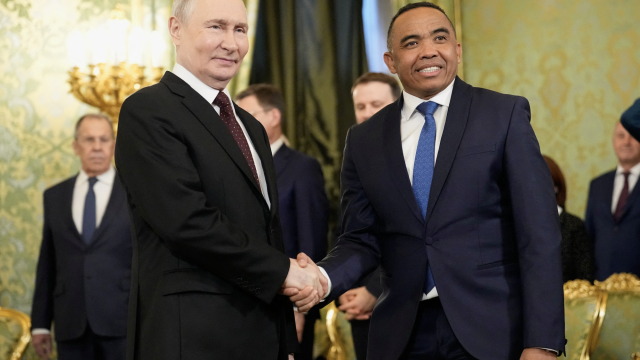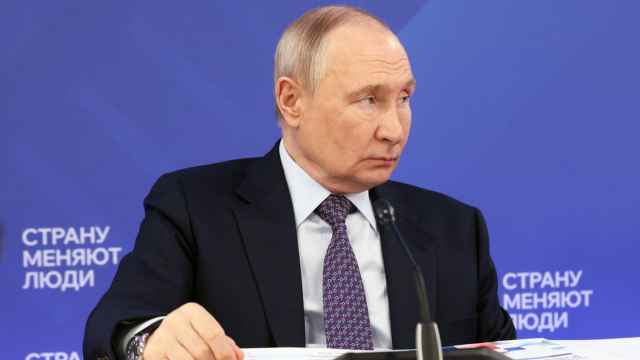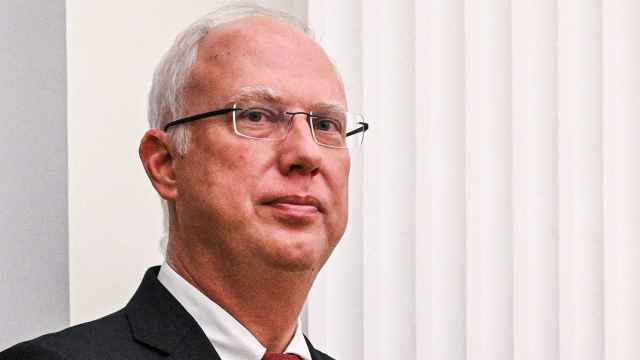The role of the government is to provide infrastructure and facilitate technological development and innovation, Communications and Press Minister Nikolai Nikiforov told business representatives at the Leaders' Club forum on Tuesday.
Information technology is important for the Russian economy, Nikiforov said. It accounts for 4.6 percent of the nation's GDP and is growing three times faster than the economy overall.
He said that the ministry is committed to push ahead with introduction of electronic identification cards, mobile number portability and the abolition of national roaming.
Moving from paper passports to plastic electronic IDs, will change the way people do business and communicate with the government, Nikiforov said. The chip inside the card will be capable of storing official information, like passport details and a digital signature, and additional data, such as travel documents or shopping coupons, as well as the cardholder's personal data, the minister said.
Regarding mobile number portability, or MNP, by which mobile subscribers can switch providers but keep their number, Nikiforov said, it needs to happen soon in order to bring more competition to the mobile communication market. Mobile companies will compete for each user's business to prevent their switching to other operators.
A law mandating MNP was signed by President Vladimir Putin in December last year, but faced opposition from mobile network operators, who blame high costs and incompatible infrastructure for the delays with its deployment.
Previously, Nikiforov said that mobile operators "may try not to be ready" for the planned introduction of the MNP on Dec 1. However, Deputy Prime Minister Arkady Dvorkovich said Tuesday that he expects it to happen on schedule. "I assume that everything can be done on time," Dvorkovich told reporters. "But if there is a delay, it won't be much, two to three months maximum."
National roaming is another problem that the Communications and Press Ministry is determined to solve, Nikiforov said. "It is some sort of a travel tax that you, business people, pay when you travel between regions in the same country, within the same economic space."
Recently appointed Russian Post CEO Dmitry Strashnov and Rostelecom chief executive Sergei Kalugin were also present at Tuesday's forum and answered questions regarding strategic development of the state-funded postal service and the long-distance communications provider. They answered questions from business people about delays with international parcel delivery and internet connectivity in remote areas.
"This meeting was informal in nature, without censorship and without prohibited themes," said Artyom Avetisyan, the Leaders' Club chairman.
Yan Berezin, head of the Innovate Group and a Leaders' Club member, added that such meetings with government ministers and company heads are very effective. "It is a breeding ground for new ideas and projects that may be deployed in the future," he said.
The Leaders’ Club brings together 340 successful entrepreneurs from 40 different regions. The club was formed in 2012 with a view to improve investment climate in the country.
Contact the author at [email protected]
A Message from The Moscow Times:
Dear readers,
We are facing unprecedented challenges. Russia's Prosecutor General's Office has designated The Moscow Times as an "undesirable" organization, criminalizing our work and putting our staff at risk of prosecution. This follows our earlier unjust labeling as a "foreign agent."
These actions are direct attempts to silence independent journalism in Russia. The authorities claim our work "discredits the decisions of the Russian leadership." We see things differently: we strive to provide accurate, unbiased reporting on Russia.
We, the journalists of The Moscow Times, refuse to be silenced. But to continue our work, we need your help.
Your support, no matter how small, makes a world of difference. If you can, please support us monthly starting from just $2. It's quick to set up, and every contribution makes a significant impact.
By supporting The Moscow Times, you're defending open, independent journalism in the face of repression. Thank you for standing with us.
Remind me later.





